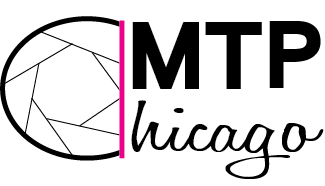**SPOILER ALERT. DO NOT READ IF YOU HAVEN'T SEEN BIRTH OF A NATION**
Dear Nate Parker:
'The Birth of a Nation' was everything I expected it to be, which does not say much for enthusiasts who really wanted to see the film. I'm not sure why you thought you were the person to tell this story, as you yourself recognize how little we know about slavery and slave rebellions, but still yet you chose to do so without (I'm convinced) consulting with historians, so you've done little to help us understand anything and perhaps have misled us more than anything. Listen, Nate, I get that some part of representation is fictive, particularly when trying to represent the everyday and mundane but especially when trying to represent slavery. But, IF you are going to altogether revise history with fictional narratives, at least do so for and with purpose. Sexual violence enacted against black women is not fodder for representing the limitations of black masculinity. If you are going to add a series of rape scenes, which necessarily requires black women whom I now don't think you would have included if not for their role as recipients of violence (note: none of these scenes are done with any form of tact or attentiveness to trauma--I suppose I shouldn't expect much given the tired conversations you keep having publicly when people press you on your past and the issue of sexual violence in general), I would hope that you could see this as an opportunity to give some form of interiority to all your black women characters and narrate them as agents in the fight against--and the everyday survival of--slavery. It might have also been the opportunity to get a better understanding of the role sexual violence plays in maintaining structures of oppression and how sexual violence alters the world and life of the victims of that violence. You chose to instead focus on how it impacts the black men around them. Because let's be clear, this movie wasn't so much about the rebellion as it was about the struggle for black men to protect their black women from white men. The actual rebellion scene felt ancillary; it was rushed, as if it did not actually take two days. The aftermath scenes felt equally rushed, as if black people weren't brutally punished and violently murdered following the rebellion. What struck me most was how quickly you were to show violence against black women throughout the whole film (noose around neck, rape and sexual objectification, dying in a chair alone, having their children removed from them) but you resisted showing violence against white women. Nat killed Margaret, a white woman, but all of the white women in the film were so redeemable and sympathetic that we could almost never imagine enslaved people wanting to kill them. They seemed like bystanders in the structuring and enforcing of slavery. I do not recall a single white woman dying nor do I recall a single white woman I wanted to die throughout the duration of the film until that white woman in the angry mob at the end. And, even then, that felt more so retaliatory for his murdering people, perhaps friends and family, than her actual understanding of him as property who got out of his place, didn't deserve rights, and could be killed at any time without recourse. When you consider that (white) men, women, and children were killed during the rebellion, it almost seemed like it was arbitrary and unjustified to kill (white) women and children, if we are to understand life during slavery through the script and lens you've provided. This tells me a lot about your gender and race politics.
And, frankly, I was tired of seeing your face by the end of it all. It felt like you were trying to prove a point about your acting through your directing. You failed to do that, too.
I could get into the particulars that made the movie itself underwhelming but I won't bore you with my film nerd analysis.
In sum, you could've, and should've, sat this one out.
